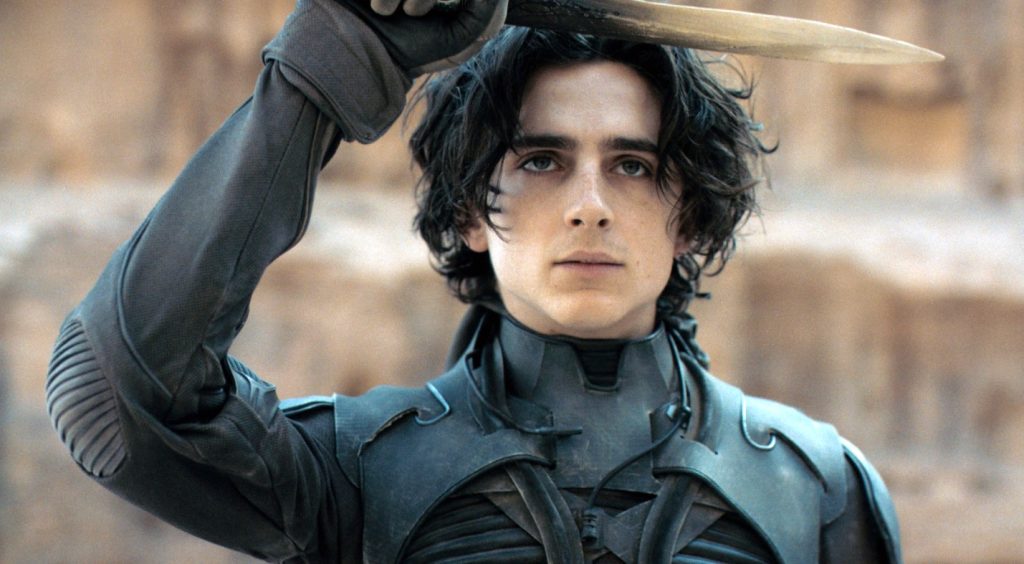According to Variety, the highly anticipated release of Dune: Part Two has been delayed.
Until March 15th due to ongoing writer and actor strikes the release of Dune: Part Two has been delayed. Originally slated for November 3rd, Warner Bros. and Legendary Entertainment agreed to postpone the film for over four months to ensure it reaches its full box office potential, relying on the publicity from its star-studded cast.
The studio and production company resisted delaying the film for as long as possible, but with the need to start advertising by early September, they ultimately chose to give it extra time. The delay will allow prominent cast members such as Timothée Chalamet, Zendaya, Austin Butler, Florence Pugh, and Christopher Walken to actively participate in an extensive marketing campaign.
The release dates of Godzilla x Kong: The New Empire and Lord of the Rings: The War of the Rohirrim have also been shifted to April 12th, 2024, and December 13th, 2024, respectively, mainly to accommodate Dune: Part Two.
The ongoing labor disputes in Hollywood among writers and actors stem from long-standing tensions, particularly regarding residual payments from streaming platforms like Netflix. Warner Bros. Discovery, which recently faced scrutiny for releasing films directly on its streaming platform, HBO Max (now MAX), with limited theatrical releases, has shifted its focus. CEO David Zaslav stated that the company will prioritize theatrical releases in the future.
The Impact of Writer Strikes
Writer strikes within the entertainment industry have a history of disrupting production schedules and release dates. These strikes typically occur when writers, who play a crucial role in creating content for film and television, demand better working conditions, fair compensation, and creative rights.
The strikes can lead to delays, script revisions, and even changes in creative teams. In the case of “Dune: Part Two,” the strikes have reportedly impacted the development of the screenplay, necessitating additional time for revisions and production planning.

Implications for the “Dune” Franchise
The delay of “Dune: Part Two” undoubtedly affects the “Dune” franchise and the expectations of fans. Here are some key considerations:
- Anticipation and Hype: The first film left audiences eagerly awaiting the next chapter of Paul Atreides’ journey. The delay extends the period of anticipation and heightens expectations.
- Quality Assurance: While delays are often met with disappointment, they can also serve as an opportunity to ensure the highest quality for the final product. Additional time for script development and production planning may result in a more polished film.
- Franchise Viability: Successful franchises depend on consistency and maintaining audience interest. The delay could impact the franchise’s momentum, but the quality of the final product is paramount to its long-term success.
- Storytelling Complexity: “Dune” is known for its intricate and thought-provoking narrative. The delay may allow filmmakers to carefully adapt the complex source material, ensuring a faithful and engaging continuation of the story.
Dune: Part One performed well at the box office, grossing $402 million. However, the hype surrounding the sequel is much greater. Director Denis Villeneuve describes Part Two as an action-packed, epic war movie set in new locations, offering a stark contrast to the contemplative nature of the first installment.

